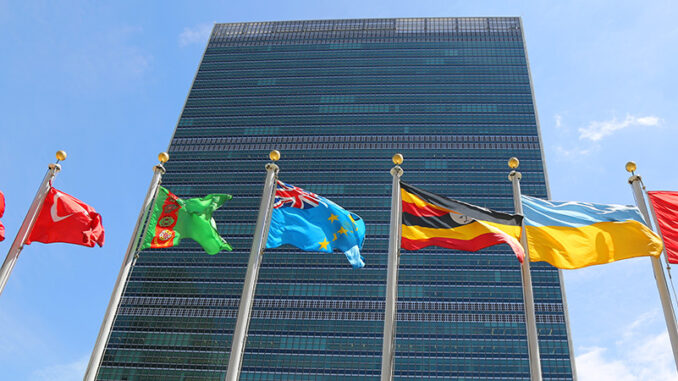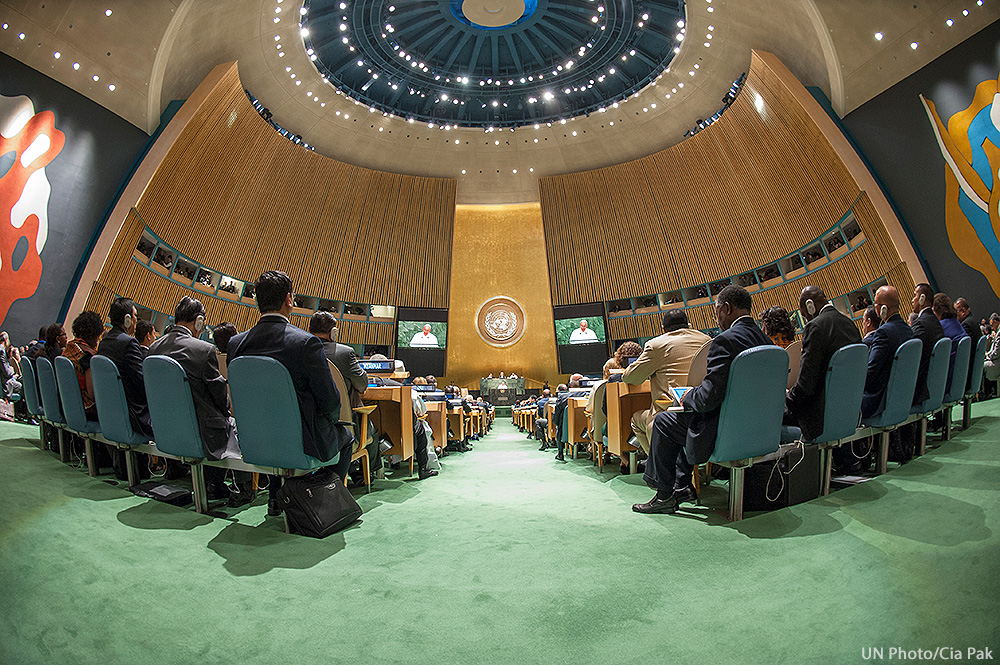
In 1945, out of the chaos and destruction of World War II, the United Nations was formed. The goal of the international organization was to keep peace between nations to prevent future horrors similar to the Second World War. The UN works to maintain international peace and security, provide humanitarian assistance, protect human rights, and promote democracy around the globe.
This year, the UN celebrates its 75th anniversary. The international organization has grown from 51 Member States in 1945 to 193 in 2020. Here, btw takes a look at some of the challenges the UN faces today.
A Virtual Celebration
The 75th anniversary celebration was limited because delegates can no longer meet in person due to the COVID-19 pandemic. Instead, the UN General Assembly held its annual meeting virtually, rather than at UN headquarters in New York City. Many world leaders delivered their remarks to the members through a pre-recorded speech.

The General Assembly unanimously adopted a resolution in honor of the 75th anniversary. The document looked back on the origins of the United Nations and reasserted the vital role of the peacekeeping organization in today’s world. It pledged to continue working to emphasize international cooperation; increase environmental sustainability efforts, renew focus on the rights of women and girls; improve digital cooperation; focus on youth; and better prepare for future global disasters.
An Uncertain Future
While the UN has achieved its primary goal–preventing another devastating world war–in many other ways, the world is more challenged today than it was in 1945. Due to war, famine, and natural disasters millions of people are currently displaced from their homes. It is expected that by the end of the year, more than a quarter billion people will be without adequate food. The global economy is facing its worst downfall since the Great Depression. The UN has also been able to make little headway on the critical issue of climate change. And a treaty to ban nuclear weapons that was introduced three years ago is still six votes shy of the fifty it would need to take effect.
Some of this ineffectiveness is due to the weak structure of the UN itself, which puts all of its members on equal footing and so is prone to deadlock. But political scientists also argue that much of the spirit of cooperation that originally fostered the creation of the organization – the Allies banding together to defeat fascism – has now been lost. Countries are often unable or unwilling to put their disagreements on hold in order to work together, even in the midst of the global pandemic. (If anything, the pandemic has caused many countries to turn even further inward.) And that is a real challenge in a world whose future depends on cooperation now more than ever before.
